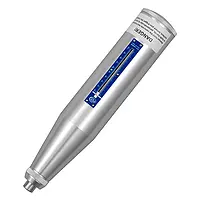
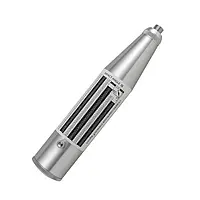
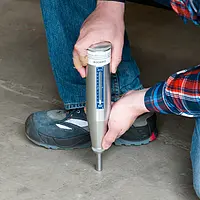
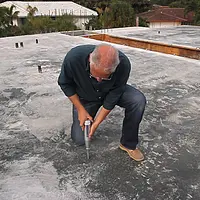
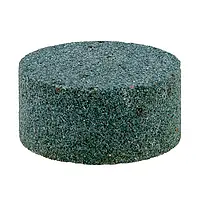
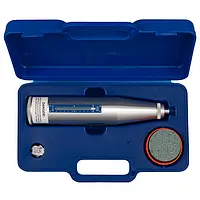
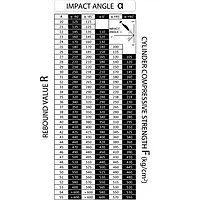
The PCE-HT-75 durometer for concrete is easy to use and is fundamentally used in the construction industry as well as other industrial sectors (testing for Wickel hardness of rolls in commodities). This durometer in the form of a hammer device for testing concrete is based on the Swiss principle of measurement. Testing is always done under the same test energy of 0.735 J. The kinetic energy of the rebound is given by the device as the measurement of the hardness of concrete, of the pressure upon the surface or as the resistance to pressure (kg/cm² or its conversion to N/mm²).
The quality of concrete is useful in understanding the material's resistance to pressure, as an orientating value for testing the load capacity and durability of concrete constructions. Resistance to pressure is represented as a series of numbers and letters, for example: B 25 indicates that the material is normal concrete with a resistance to a pressure equal to 25 N/mm². Different readings exist up to the highest class of resistance which is indicated as B 55. With our durometer you will be able to easily and accurately classify concrete. The durometer comes calibrated from the manufacturer but an ISO calibration certificate can be ordered separately at extra cost.
General information about concrete's resistance to pressure
Resistance to pressure is generally defined as the measurement of resistance to breaking under a particular pressure load at an axis during a brief point in time. The resistance to pressure of concrete is determined, taking into account the following parameters:
Resistance to pressure is normally determined in laboratories using cubes or cylinders of concrete. If using cylinders, once the concrete sample has been chosen, it is recommended that a surface is immediately prepared that is flat and smooth. Cylinders are very durable. In places where it's not possible to take measurements with methods used in laboratories, a Hardness tester, with an easy to use hammer, is used.
| Spring stretch | 75 ± 0.3 mm / 3 ± .01 in |
| Measuring range | 10 ... 70 N/mm² |
| Energy | 0.735 J |
| Indication of measurement | 0 to 100 (without dimensions) |
| Scale for the resistance to pressure at the back | To convert values indicated without dimensions to kg/cm² (with introduction of angle) |
| Correction table for measurements | In the user's manual |
| Dimensions | Diameter 54 x 268 mm / 2.1 x 10.5 in |
| Weight | 1 kg / 2.2 lbs |